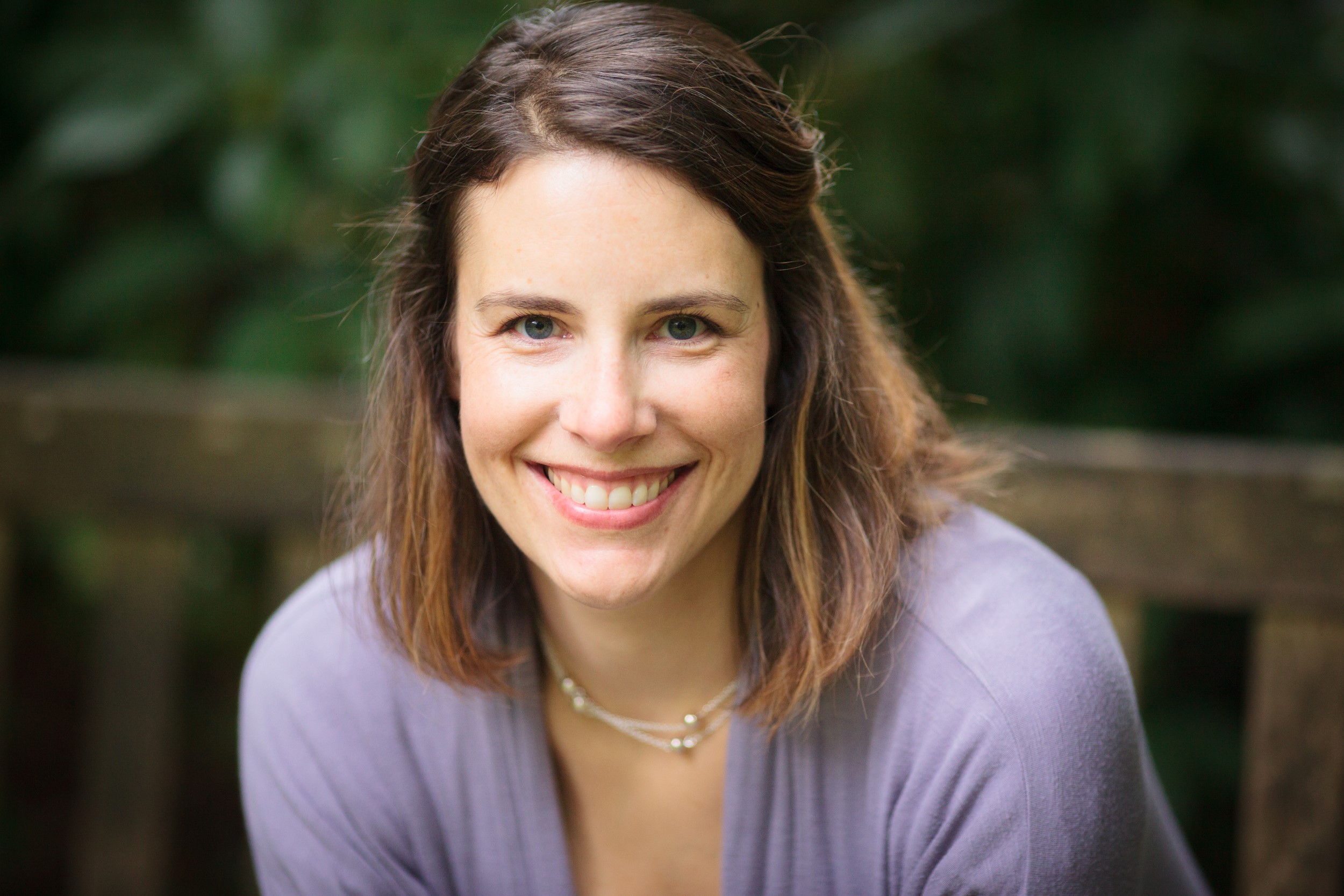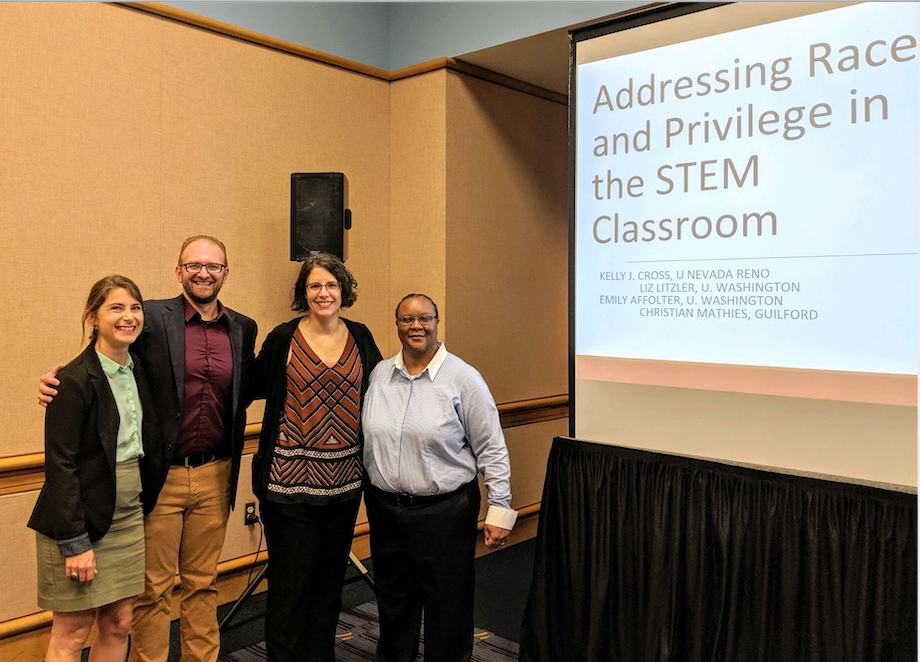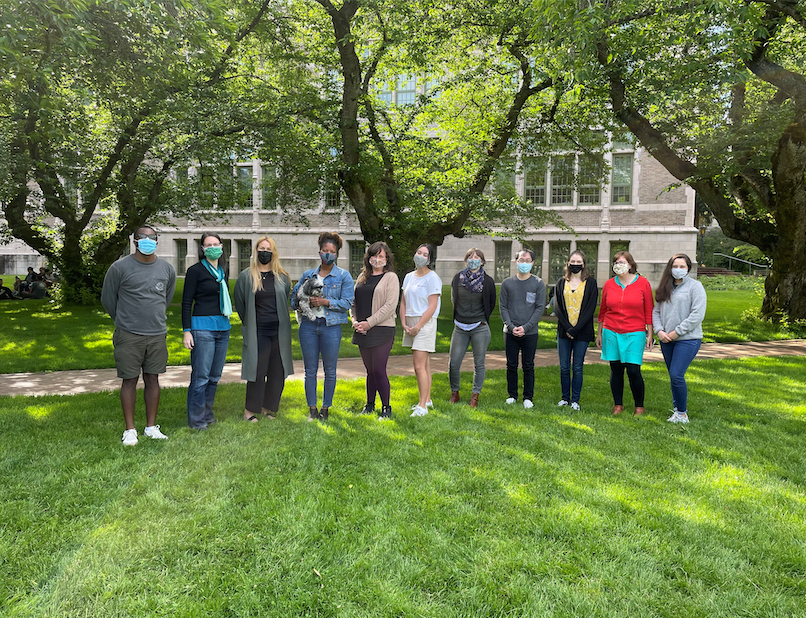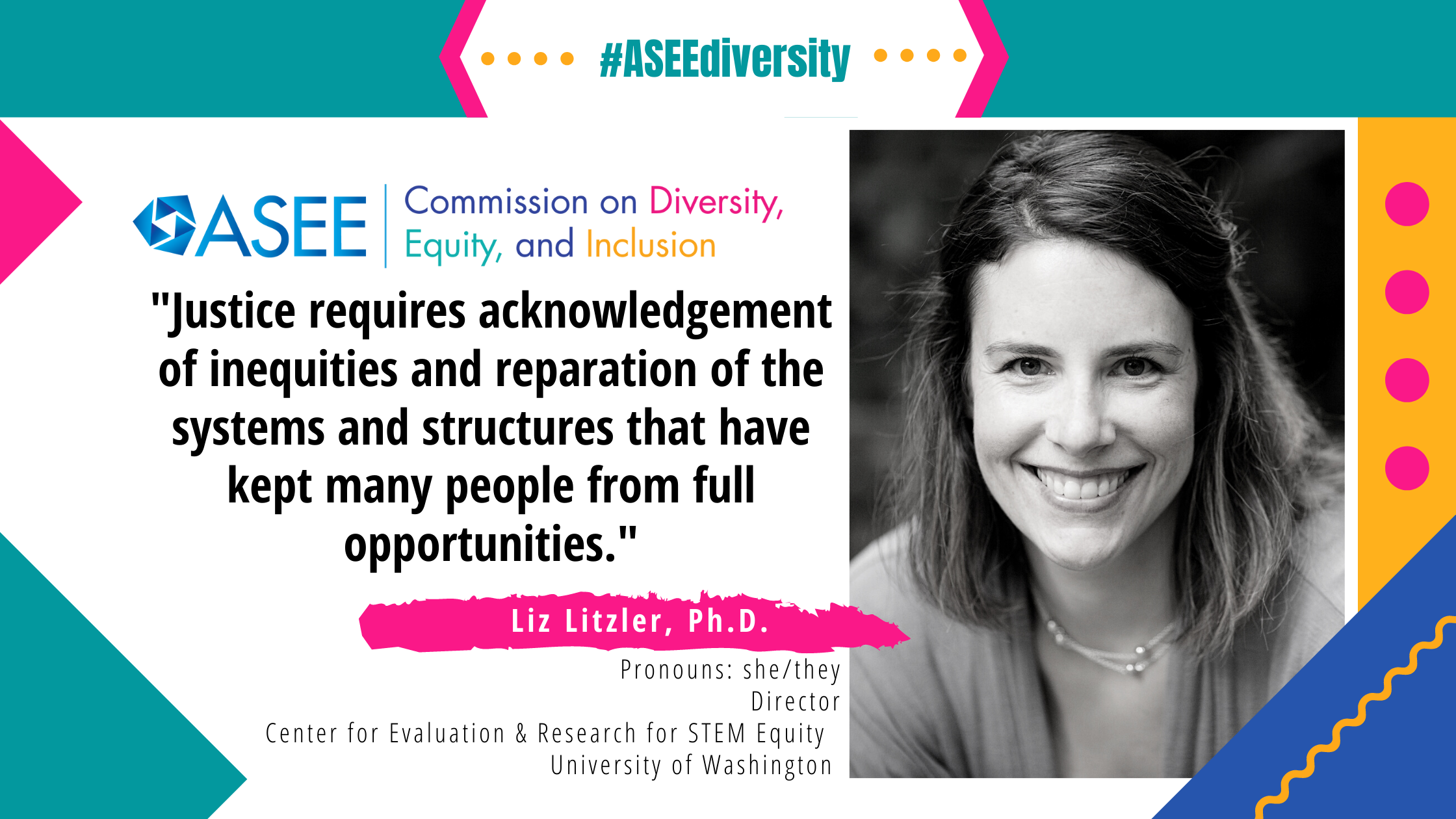
ASEE CDEI Scholar Spotlight Series: Liz Litzler, Ph.D.
Liz Litzler: A look into our 2020-2021 chair of the ASEE Commission on Diversity, Equity, and Inclusion (CDEI)
In this blog post, we have the honor to hear the story of Liz Litzler, Ph.D. (She/They), our 2020-2021 Chair of the ASEE Commission on Diversity, Equity, and Inclusion (CDEI). Liz’s active participation and support as chair during this challenging year allowed our CDEI Communications Committee to flourish. Our bi-weekly meetings led by Tershia Pinder-Grover, Ph.D., were an oasis in the middle of the isolation. The CDEI board wanted an active communication committee for a long time, and Liz did it during the pandemic with support and kindness. This spotlight has a distinct intention to serve as a THANK YOU to Liz for her fantastic service in CDEI.
Liz is the Director of the Center for Evaluation & Research for STEM Equity (CERSE) at the University of Washington (UW) and an Affiliate Assistant Professor in UW Sociology. Besides ASEE, she is a former board member of Women in Engineering ProActive Network (WEPAN) and the recipient of the 2020 WEPAN Founders Award. She has led social science research projects such as the UW portion of NSF-funded Revolutionizing Engineering Departments Participatory Action Research (REDPAR) and the Sloan-funded Project to Assess Climate in Engineering (PACE). She also manages program evaluations that provide actionable strategies to improve diversity, equity, and inclusion in STEM fields. This includes evaluation of NSF ADVANCE, S-STEM, INCLUDES, and IUSE projects, and climate studies of students, faculty, and staff. Her social science research covers many topics and has used critical race theories such as Community Cultural Wealth to describe the experiences of systemically marginalized students in engineering.
I am sure that Liz’s belongingness story in this interview will resonate with many of you. Enjoy!
At the end of this post, don’t miss out on the opportunity to connect with our scholar and learn more about the ASEE CDEI‘s efforts.
ASEE CDEI Communications Committee Volunteers:
- Introduction, editor and webmaster: Sindia M. Rivera-Jiménez, Ph.D., University of Florida (Twitter)
- Editors: Susan Boerchers, Lafayette College; Tershia Pinder-Grover, University of Michigan, Homero Murzi (Twitter), Virginia Tech, and Elizabeth Litzler, University of Washington.
Scholar Interview
Q1: Can you tell us your story of belongingness?
As a sociologist who studies stratification within STEM fields in my scholarly work, I sometimes end up feeling out of place in engineering and other STEM disciplinary settings. My social science discipline often sets me apart from others and means that I sometimes engage with projects as an outsider. I find myself “disclosing” my non-engineer status because I need to make sure that people don’t assume I know things about the engineering discipline that they know. I have learned to make jokes about my outsider status.
My belonging within ASEE has definitely changed over time, and I feel strongly aligned with the organization now compared to when I went to my first ASEE conference as a graduate student in Portland, OR in 2005. As I have become more involved with ASEE through the Commission on Diversity, Equity and Inclusion (CDEI), I have developed a greater sense of belonging in this field. I strongly encourage those who don’t feel connected to ASEE or other professional societies to get involved in a division, section, zone, or commission.
Q2: What is your understanding of Diversity, Equity, and Inclusion (DEI), and why is it important to what you do?

Liz Litzler, Ph.D.
(she or they pronouns)
University of Washington
I believe that diversity, equity, inclusion, and justice (DEIJ or JEDI) is a three-legged stool. Justice is the seat, and diversity, equity, and inclusion are the legs of the stool. Justice is the foundation for everything else. Justice is required to make any of the other parts of the stool work. Justice requires the dismantling of barriers and access to resources. Justice requires acknowledgement of inequities and reparation of the systems and structures that have kept many people from full opportunities. In addition, without any of the three legs of the stool, the work we are trying to do to advance our field will falter. Working towards DEI requires that we have a strong foundation and commitment to justice in our society. Only then will our work to improve diversity, equity, and inclusion truly begin to have an impact.
Q3: What are your current initiatives towards DEI work?
All of my work as the Director of the Center for Evaluation & Research for STEM Equity (CERSE) at the University of Washington has DEI principles and values embedded in it. At CERSE we focus on evaluating programs and conducting research that have an equity, diversity, and inclusion focus, and we are constantly trying to do our work in ways that allow us to live our DEI values. In addition to our evaluation work at CERSE, I am also part of multiple research projects. I’d like to highlight a collaborative assets-based and intersectional research project for the Pacific Northwest LSAMP grant where we are examining community cultural wealth factors that contribute to persistence in STEM among systemically marginalized students. My CERSE colleagues Emily Knaphus-Soran and Daiki Hiramori are doing awesome work to develop a quantitative scale to measure community culture wealth in STEM and to put the focus for change back on institutions rather than on individuals.
I’m also working on a few different volunteer initiatives that focus on DEI, including 1) work with colleagues Kelly Cross, Emily Affolter, and Christian Mathies to provide professional development to help engineers and STEM disciplinary experts to consider ways to be anti-racist in their classrooms, 2) providing evaluation services for The Privilege Institute’s White Privilege Conference, and 3) a project with DEIJ (the J is for Justice) facilitators (Robyn Bryers, Armina Khwaja Macmillan, Rosetta Lee, Emily Affolter, and Cara Margherio) wrapped up last year and resulted in this article that shares our critical thinking about questions to ask yourself when preparing to conduct a DEIJ event.
Finally, I’m completing my year as the ASEE Chair of the Commission on Diversity, Equity, and Inclusion, and I feel proud of the work that has been accomplished this year by CDEI’s many volunteers. As a collaborative, we have done so much, and I hope that our members feel a sense of belonging to the group as a result of their participation in our work. I have worked hard to increase communication with our community, which I believe can help contribute to a sense of belonging. And I am so excited for what we will accomplish next year with the ASEE Year of Impact for Racial Equity.

ASEE 2019 CDEI Presentation
Q4: What do you see as the next steps for your DEI work?
I envision my work continuing to employ assets-based frameworks that put the focus on the role of our institutions in improving diversity, equity, and inclusion in engineering and STEM. We have to more deeply examine our systems, policies, and practices that are creating environments that disadvantage and exclude marginalized and minoritized students.
Q5: What recommendations do you have for engineering educators to start incorporating social justice in their classrooms?
I have two big things I want to share here: First: you can’t present social justice topics in your classroom if you don’t know what to say, so start (or continue) your own learning now. Listen to podcasts (e.g., Engineering Change, Engineering Visibility, Modern Figures), watch movies like Coded Bias, Picture a Scientist and FIXED: The Science/Fiction of Human Enhancement, and read articles.
Second: I have to regularly remind myself of these three things: 1) we have to act and interact to incorporate social justice in our lives and our classrooms, 2) when we act, we are bound to make mistakes sometimes (it is okay that we are not perfect) and 3) when we make mistakes, we have to own the impact of those mistakes on others, even if our intentions were good. When we make mistakes, ask, “what can I do to make it right for the person I hurt?”
We are all fallible and if we don’t start somewhere, nothing will ever change. We need to lean into the discomfort because that is how we know that learning is happening. Each time you tackle including a social justice topic in your classroom will make the next time easier, and you will have learned something about what works and what doesn’t.
Q6: What resource can you recommend to people who want to learn more about DEI in your field?
There are so many resources and scholars I want to mention, but I’ve especially been enjoying the work of Erin Cech and also Alex Mejia and colleagues. Further, I’ve seen some awesome Guest Editorials in JEE related to DEI topics and would point you just a few of the many great ones that have been influential for me: Kelly Cross, Leroy Long III, James Holly Jr., Alice Pawley
Cech, Erin A. and William R. Rothwell (2018) , “LGBTQ Inequality in Engineering Education.” Journal of Engineering Education. Vol. 107(4): 583-610.
Mejia, Joel A., Renata A. Revelo, Idalis Villanueva, and Janice Mejia. 2018. “Critical Theoretical Frameworks in Engineering Education: An Anti-Deficit and Liberative Approach” Education Sciences 8, no. 4: 158. https://doi.org/10.3390/educsci8040158

Spring 2021 CERSE staff celebration
Recommended ASEE PEER paper from our scholar:
Margherio, C., & Litzler, E., & Doten-Snitker, K. (2017, June), Developing a Shared Vision for Change: New results from the Revolutionizing Engineering Departments Participatory Action Research Paper presented at 2017 ASEE Annual Conference & Exposition, Columbus, Ohio. 10.18260/1-2–28133
Abstract Excerpt: “This paper addresses one of the research questions guiding the study, “How do change agents empower stakeholders to develop a shared vision for change?” We find that the RED teams have pursued different paths to engage their respective stakeholders, from building strategic partnerships with external stakeholders such as industrial advisory boards to initiating structural changes to shift internal culture in their institutions. ”
Litzler, E., & Samuelson, C. (2013, June), How Underrepresented Minority Engineering Students Derive a Sense of Belonging from Engineering Paper presented at 2013 ASEE Annual Conference & Exposition, Atlanta, Georgia. 10.18260/1-2–19688
Abstract Excerpt:”This study offers important insights into the sense of belonging of African American, Latino, and Native American students in undergraduate engineering programs, which can contribute to better supporting, retaining and graduating these students. Specifically, we seek to better understand the different ways that under-represented minority engineering students find a sense of belonging at engineering schools, and how it might contribute to their ability to persist.”
Find more articles on ASEE Peer for this scholar: Elizabeth Litzler
Connect with our scholar:
- Website
- You can also find me on Instagram but you will only see my modern quilting photos there.

Pictures from Liz’s Instagram account showing up serious pumpkin carving and quilting skills.
Getting involved with CDEI
- If you want to recommend someone for our Spotlight series click here.
- Check out website Highlights:
- Resources
- Past Blogs and Events
- Compilation of Newsletters and Reports
- Connect with the committee:
- Become a Friend of the Committee
- Follow us and tag us on Twitter
- Become a volunteer on our Communications Committee! We are always looking for people that want to share or improve their writing and leadership skills.
Check out other Spotlight Scholars:
- Dr. Homero Murzi: Creating culturally responsive environments by focusing on the voices of our engineering students (September, 2020)
- Dr. Tony E. Butterfield: Empowering faculty and students to create an inclusive environment for the LGBTQ+ community (October, 2020)
- Dr. Carlotta A. Berry: From trailblazer to building a strong community and network to foster allyship and confidence among engineering students (February, 2021)
- Dr. Lindsay Soh: From actively maintaining a sense of belongingness to helping others develop their own (March, 2021)
- Dr. Idalis Villanueva-Alarcón: Using her experiences in liminality served as a lens for research scholarship that challenges normative ways of learning. (April 2021)
- Brianna Benedict: Building a community of educators passionate about diversity, equity, and inclusion in engineering education. (May 2021)

